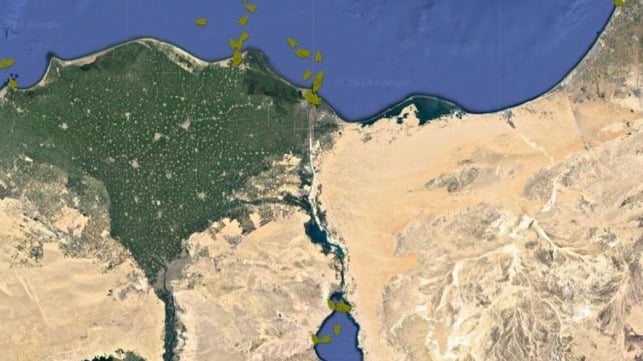Egypt's economy may soon feel the pinch from the security situation in the Red Sea, which has drastically reduced traffic in the Suez Canal.
Waterways are an important and reliable source of income, and their importance has increased since the recent two-lane widening program increased transportation capacity. In 2022-2023, the war in Ukraine caused a surge in tanker traffic, with transit fees approaching $9 billion, accounting for about 2% of Egypt's GDP. The Egyptian government is using these dollars (among other purposes) to pay down its $165 billion public debt.
However, attacks by Yemen's Houthi rebels on international shipping have significantly reduced canal traffic and reduced canal revenue. Almost all large container ships are now rerouting around the Cape of Good Hope, citing security threats as well as an increasing proportion of bulker and tanker shipments. According to Osama Rabie, chairman of the Suez Canal Authority, traffic on the canal is down 30% year-on-year, and dollar revenue from canal fees is down 40%.
The canal's toll structure is part of the consideration for ship owners when making diversion decisions, said Paul Touret of the French maritime research institute ISEMAR. He told AFP that by circumnavigating Africa without going through the canal, he could save enough canal fees to offset the additional fuel costs, and that the overall cost would be “about the same in the end” for the long trip. he said.
More and more owners are taking this decision, which is a major blow to Egypt's finances. Egypt will need to come up with $29 billion to repay its external debt in 2024, according to the country's central bank. This is an unusually high level and reflects the large amount of debt principal coming due this year.
The turmoil comes at the same time that war in neighboring Gaza has reduced Egypt's tourism revenue. Tourism is another major foreign currency earner for Egypt, generating as much as $12 billion in revenue in a good year.
Although the Suez turmoil has had a significant impact on Egypt's sovereign revenue, the Egyptian government has not publicly criticized the actions of Yemen's Houthi rebels in the Red Sea. The Egyptian navy, the largest in the Arab world, is not a prominent part of the international presence near Bab el-Mandeb.


